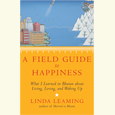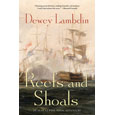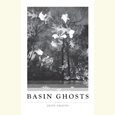It’s All Gone Now
Richard Bausch delineates the complexity of the human heart
A young police officer whose wife has just announced her intention to leave him goes out for a walk and finds himself in an encounter with an unlikely bandit. A semi-closeted gay man meets his much-younger half-sister for the first time since infancy and discovers that his estrangement from their father has caused him to fail in his true familial obligations. After years focusing on her career, a middle-aged woman dips her toes into online dating and finds herself an unwilling counselor to a man still grieving his divorce. A young painter falls passionately in love with a nude model and throws away what had seemed a certain path to contentment. These are Richard Bausch’s people, and the weather of their world is, in a word, cloudy.
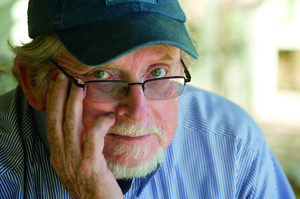
Bausch has long been considered one of American literature’s most gifted writers of fiction, but I hesitate to call him a “writer’s writer,” as this term tends to be interpreted as code for “respected but not widely read.” Over a long career, Bausch—who held the Moss Chair of Excellence at the University of Memphis before leaving in 2012 for Chapman University in California—has earned a wide and loyal readership; nevertheless, he is always near the top of the list of writers recommended by other writers as a good person to study if you want to see how it should be done.
Bausch is a master of every form of fiction, from lyrical short-shorts to multi-part long stories with novelistic scope to full-length novels. Still, praising his technical skill feels like a backhanded compliment. Writers care about technique; readers care about heart and soul, and Richard Bausch’s stories persistently evoke the kind of reflection and catharsis for which we all turn to fiction, dispensed with a subtle force that sometimes takes you by surprise and leavened with droll humor that echoes the tragicomic nature of our imperfect world.
So forgive me, please, for beginning by acknowledging that the stories in Living in the Weather of the World are beautifully constructed and likely to inspire other writers to take notes. Perhaps the most outstanding of the writerly virtues on display here is Bausch’s gift for dialogue: all of his characters’ words are both natural and revealing. In “The Same People,” for example, the words exchanged by an aging couple on vacation in Ireland gradually reveal a terrible truth. The words deliver a powerful narrative, but they are also imbued with a haunting transcendent melancholy:
“I wish I had been religious.”
“You’ve been spiritual.”
“Yes, I know,” she says. Then, in a kind of recitation: “The religious person is afraid of going to Hell. The spiritual person has already been there.”
Notice here the relationship between form and content. The woman, who is ill, delivers in a dry, almost mocking tone a statement that forces readers into a discomfiting and world-enlarging reflection. Am I religious, or spiritual, or both? Am I afraid of Hell? Have I already been there? What would it mean to believe so? What would it take to make me feel as if I had? This is why writers tend to bore non-writers by praising Richard Bausch for his “mastery of the form” instead of simply saying that this new book contains an amazing story about a woman contemplating suicide that will make you question how well you are living and whether you have loved bravely enough. Bausch’s sleight of hand with craft feeds the spiritual and philosophical dimension of his work that gives it the gravity and resonance of real art.
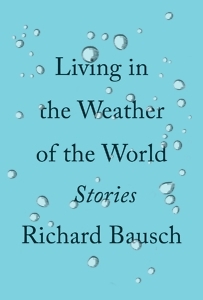 “In an age of disbelief,” wrote Wallace Stevens, “it is for the poet to supply the satisfactions of belief, in his measure and his style.” For Bausch—in these stories, at least—the source of such satisfactions seems to be love, and its elusiveness is the central problem of contemporary existence. Adultery and abandonment are persistent sources of conflict, usually perpetrated by flawed men on the road to well-deserved comeuppances that nevertheless feel more painful than satisfying.
“In an age of disbelief,” wrote Wallace Stevens, “it is for the poet to supply the satisfactions of belief, in his measure and his style.” For Bausch—in these stories, at least—the source of such satisfactions seems to be love, and its elusiveness is the central problem of contemporary existence. Adultery and abandonment are persistent sources of conflict, usually perpetrated by flawed men on the road to well-deserved comeuppances that nevertheless feel more painful than satisfying.
In “The Lineaments of Gratified Desire,” a young artist engaged to be married to a woman with whom he has shared a near-magical courtship diverts from a seemingly clear path to happiness by falling in love with a femme fatale he’s been hired to paint nude for her very wealthy and very old fiancé. “This is an affair,” his father tells him. “And you know there’s nothing at all romantic about this kind of thing—it’s sordid and low and vulgar, and it means lying and stealing around dark corners and worrying all the time about getting caught. Is that the kind of life you want?” The answer appears to be a resounding yes; the artist is too overcome by his passions to see how obviously foolish he’s being. And yet such foolishness is the stuff of life, in Bausch’s estimation. And the complications of the lives that make up The Weather of the World are at once surprising and achingly familiar.
In the world of these stories, the weather does tend to be bleak, and arching over them all is a sense that things have never been any better. Bausch is too clear-eyed and honest a writer to offer false hope. He is also wise enough not to shy away from the moral dimension of art, a side that’s too easy to dispense with in our chaotic, relativistic age. Bausch’s people hunger for kindness and wish to be good, but they fail again and again, as we all will, and must, along our paths to wherever we’re heading. And while there isn’t a shred of sentimentality on display in Living in the Weather of the World, there is ample sympathy and generosity of spirit, even to those who seem undeserving. Moreover, in almost every case, these stories do exactly what stories are meant to do: they draw you in from the first line, make you care about the characters, keep you wondering what’s going to happen next—they surprise, delight, provoke, make you think “I didn’t see that coming,” and, finally, they break your heart.
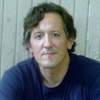
Ed Tarkington’s debut novel, Only Love Can Break Your Heart, was published by Algonquin Books in January 2016. He lives in Nashville.
